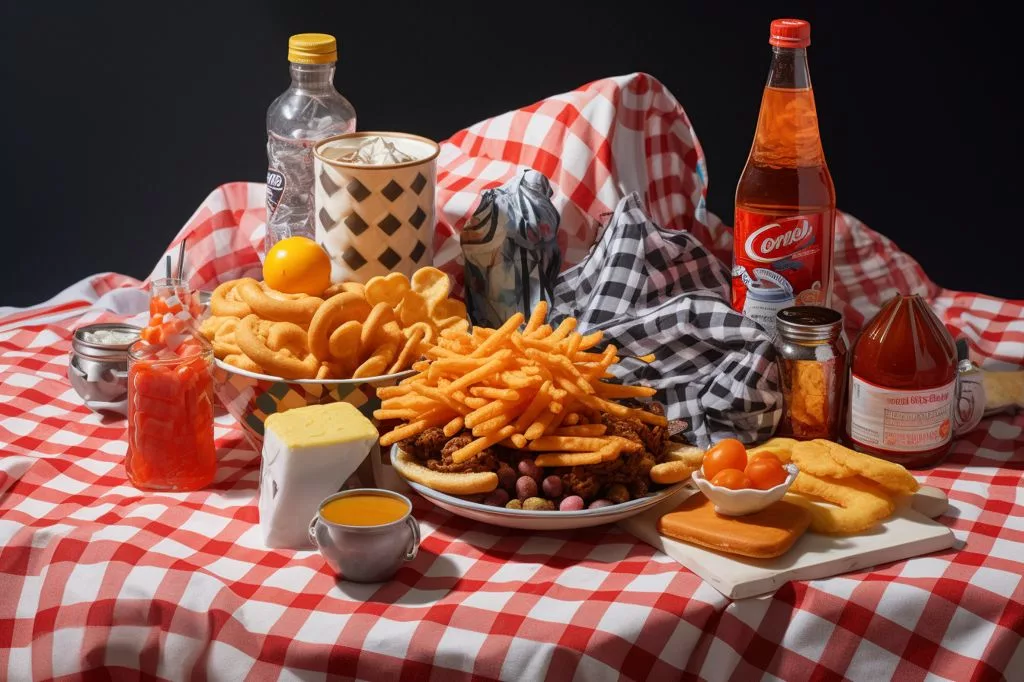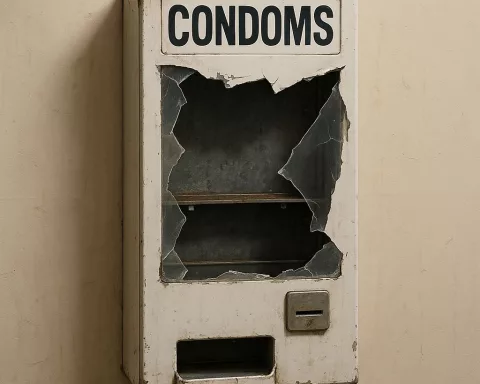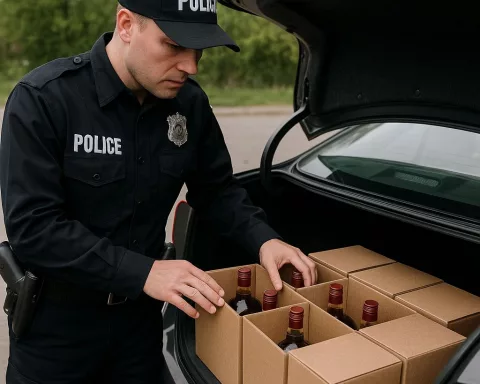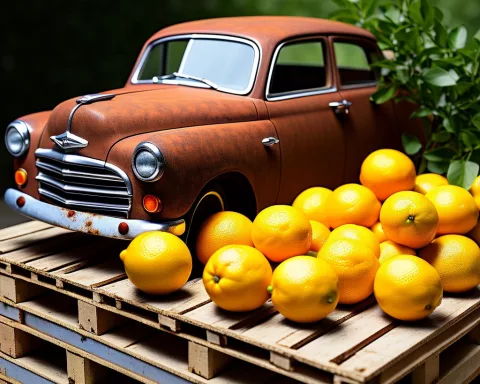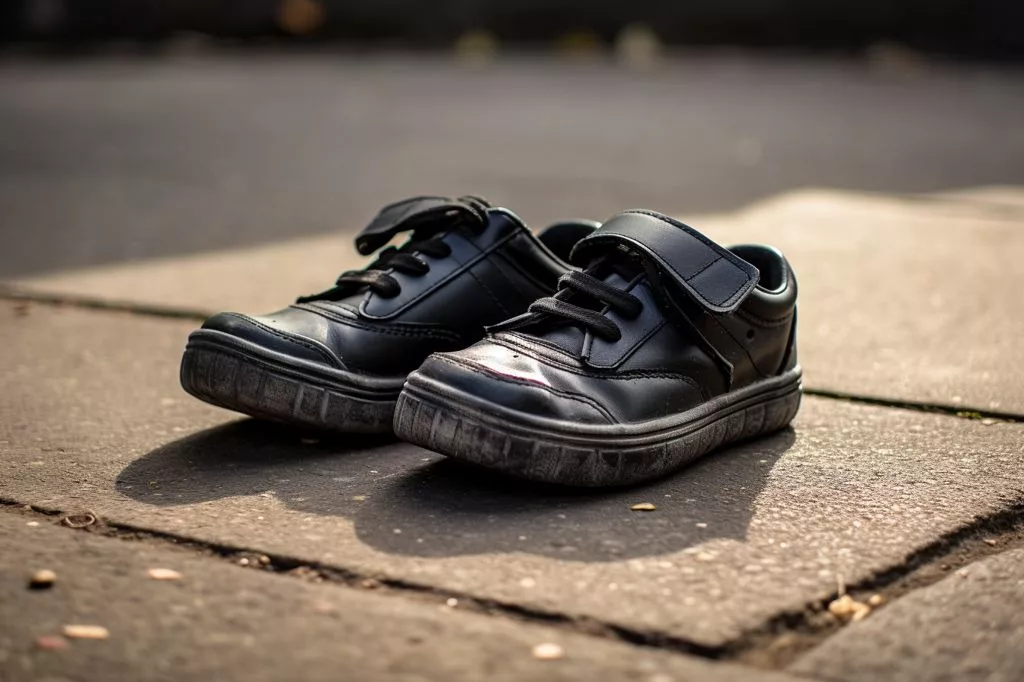Counterfeit food products are increasingly being sold, especially in impoverished areas, putting consumers’ health at risk. The government is also deprived of essential revenue that could be invested in public services, ultimately impeding efforts to attract investors. DESTEA urges citizens to report any illegal activities or suspicious products to help stop the sale of dangerous fake goods and protect their health and wellbeing. Public vigilance and cooperation are crucial in the pursuit of a safer, healthier, and more prosperous future.
What is the escalating issue of counterfeit foods?
Counterfeit food products are increasingly being sold as the cost of living and unemployment rates rise, putting consumers’ health at risk. The illegal trade of fake food products is prevalent in impoverished areas, where unsuspecting consumers are exposed to the risks of expired and counterfeit foods. These fake products are often produced in unsanitary facilities, and well-known brand labels are deceitfully attached to them. The government is deprived of essential revenue, which could be invested in public services, ultimately impeding efforts to attract investors to the Free State.
The Surge in Illicit Food Sales
The trading of counterfeit goods and food items has increased dramatically in recent years, as the cost of living and unemployment rates continue to rise. This dangerous trend is particularly prevalent in predominantly impoverished areas, where unsuspecting consumers are exposed to the risks associated with fake food products.
The Free State Department of Economic, Small Business Development, Tourism and Environmental Affairs (DESTEA) has voiced serious concerns over this problem, especially after receiving multiple complaints and accusations from the public about the sale of expired and counterfeit foods that pose significant health hazards. In an unfortunate incident, two young children in Vredefort recently lost their lives after allegedly consuming snacks purchased from a local tuckshop, prompting urgent action from DESTEA and the South African Police Service (SAPS).
As the investigation progresses, DESTEA’s Inspection Directorate commits to working closely with law enforcement agencies in operations across the province to halt the sale of counterfeit goods and food products. Thabo Meeko, a representative for DESTEA, stressed the need for quick action in light of these claims, stating, “While we cannot verify the authenticity of videos and pictures, we must act swiftly on accusations of illicit trade of counterfeit goods sold to the public.”
The Threat to Public Health and Government Revenue
The alarming truth about these operations is that fake products are often produced in unsanitary facilities, where well-known brand labels are deceitfully attached to the counterfeit goods. This illegal trade not only puts people’s lives at risk but also deprives the government of essential revenue that could be invested in public services, ultimately impeding efforts to attract investors to the Free State.
To tackle this urgent issue, DESTEA has been collaborating closely with the Legislature to expedite the finalization of the Free State Integrated Local Economic Development and Transformation Bill. This legislation aims to encourage the growth of the Free State economy by:
- Imposing restrictions on foreign ownership of certain business categories through prescribed quotas
- Regulating the licensing of businesses
- Ensuring exclusive ownership and operation of specified business categories for citizens
- Requiring exclusive sourcing and procurement by state organs of locally produced commodities
This all-encompassing strategy will not only help curb the spread of counterfeit food products but also create a more stable and resilient economy for the region. However, the responsibility does not lie solely with the government and its agencies; the public must also remain alert in the battle against illicit trade.
The Role of Public Vigilance and Cooperation
DESTEA urges citizens to report any illegal activities or suspicious products to the nearest police station or the DESTEA Consumer Protection Unit. By working together, the community can help stop the sale of dangerous fake goods and protect their health and wellbeing, as well as the well-being of the Free State.
In this age of globalization and rapid technological advancements, the counterfeit food industry has transformed into a complicated and perilous domain. As innocent consumers continue to be affected by the dangers of these fake goods, it is crucial that government agencies, law enforcement, and the public collaborate to tackle this growing threat. The Free State’s ongoing struggle against illicit trade serves as a stark reminder of the importance of vigilance and cooperation in the pursuit of a safer, healthier, and more prosperous future.
1. What are counterfeit food products?
Counterfeit food products are fake food items made to look like well-known brand labels but are instead produced in unsanitary facilities. They pose a significant risk to consumers’ health and wellbeing.
2. Why are counterfeit food products being sold?
Counterfeit food products are being sold as the cost of living and unemployment rates rise, particularly in impoverished areas where unsuspecting consumers are exposed to the risks associated with fake food products.
3. How is the government affected by the sale of counterfeit food products?
The government is deprived of essential revenue that could be invested in public services, ultimately impeding efforts to attract investors to the Free State.
4. What is the Free State Department of Economic, Small Business Development, Tourism and Environmental Affairs (DESTEA) doing about the problem?
DESTEA has voiced serious concerns over counterfeit food products. They have been collaborating closely with the Legislature to expedite the finalization of the Free State Integrated Local Economic Development and Transformation Bill to encourage the growth of the Free State economy.
5. What is the Free State Integrated Local Economic Development and Transformation Bill?
The Free State Integrated Local Economic Development and Transformation Bill is a legislation that aims to encourage the growth of the Free State economy by imposing restrictions on foreign ownership of certain business categories through prescribed quotas, regulating the licensing of businesses, ensuring exclusive ownership and operation of specified business categories for citizens, and requiring exclusive sourcing and procurement by state organs of locally produced commodities.
6. How can the public help in the fight against illicit trade?
DESTEA urges citizens to report any illegal activities or suspicious products to the nearest police station or the DESTEA Consumer Protection Unit. By working together, the community can help stop the sale of dangerous fake goods and protect their health and wellbeing, as well as the well-being of the Free State.
7. What is the importance of vigilance and cooperation in the fight against counterfeit food products?
As innocent consumers continue to be affected by the dangers of counterfeit food products, it is crucial that government agencies, law enforcement, and the public collaborate to tackle this growing threat. The ongoing struggle against illicit trade serves as a reminder of the importance of vigilance and cooperation in the pursuit of a safer, healthier, and more prosperous future.
8. What is the urgency of this issue?
Counterfeit food products put consumers’ health at risk and deprive the government of essential revenue. It is important to take quick action to prevent the sale of dangerous fake goods and protect the community’s health and wellbeing.

